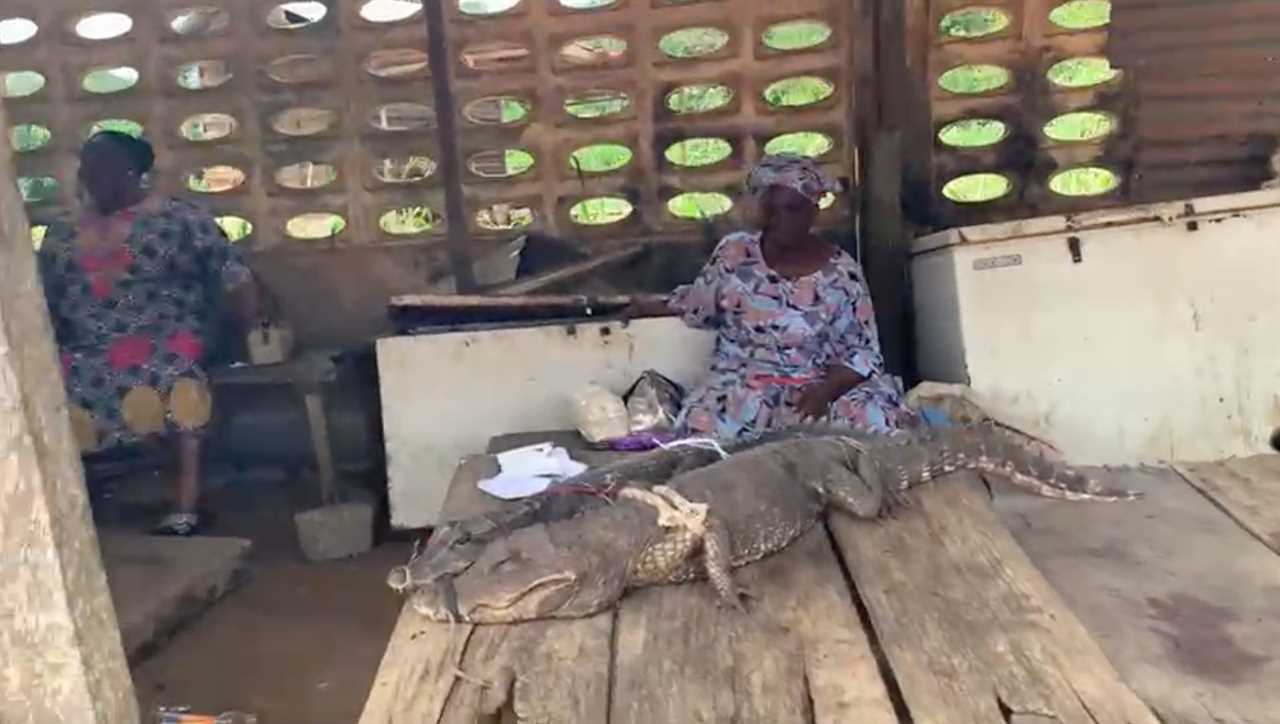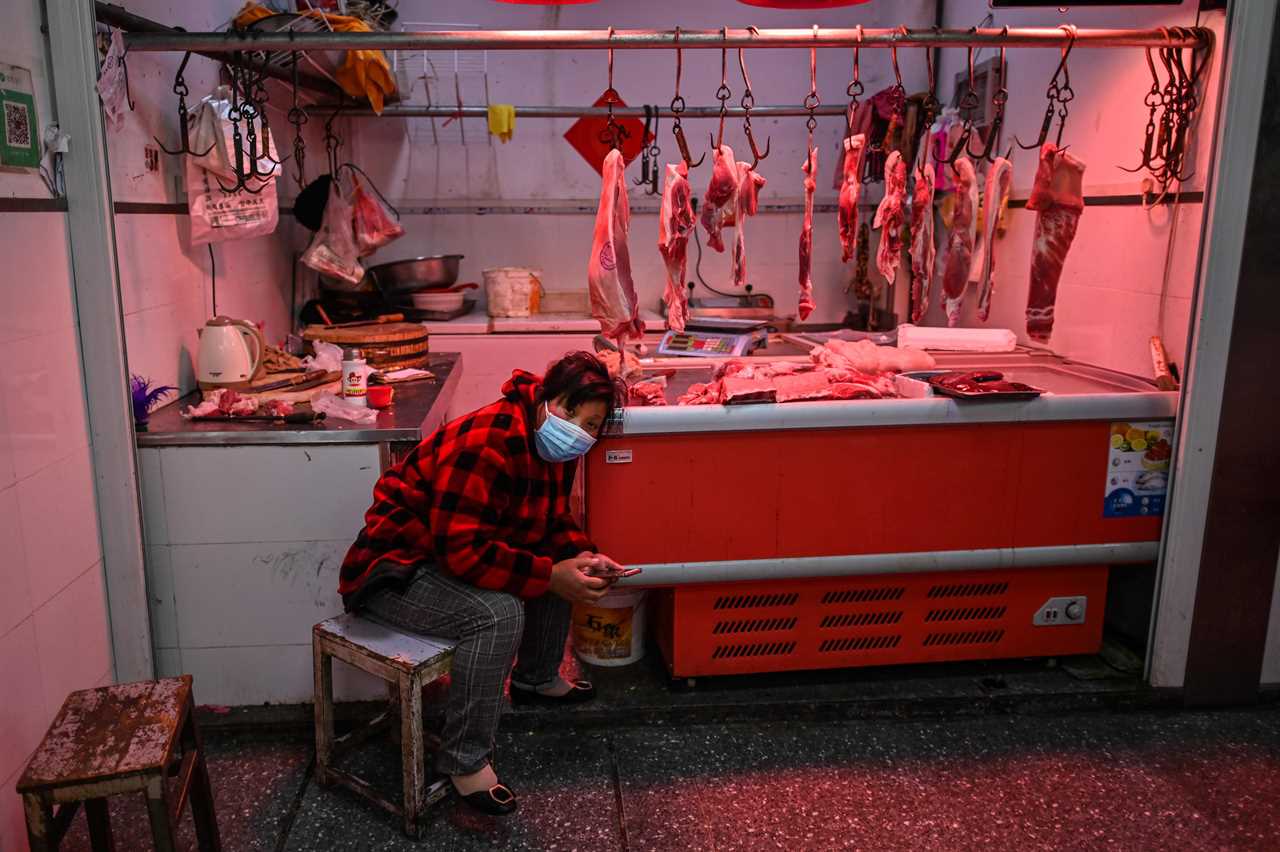HORRIFIC images have emerged showing baby monkeys chained up by their NECKS in a wet market in Indonesia.
The caged baby primates are just one of many animals to be captured on camera in the region amid fears that the markets continued existence could spark the next global pandemic after Covid.
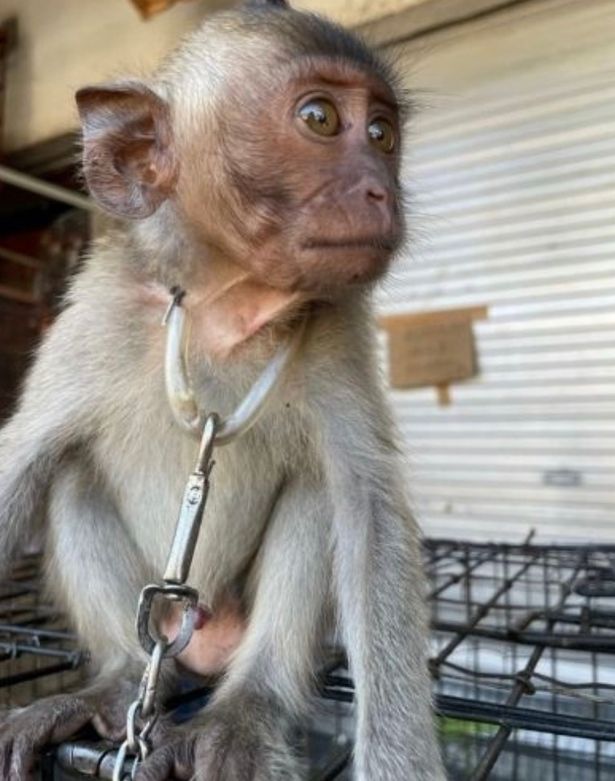
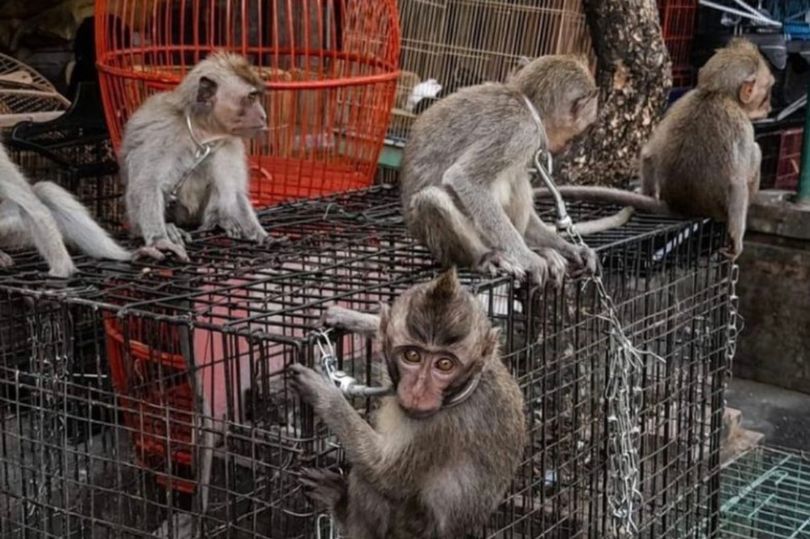
Currently, the Indonesian authorities are being urged to intervene on ground level after the Jakarta Animal Aid Network (JAAN) claimed the images represented a “serious wildlife crime.”
They believe many of the long-tailed macaques brought from the Sumatra island are openly sold at Satria Bird Market in Denpasar and face extinction due to their classification as “vulnerable” species internationally.
In a statement, JAAN said: “In Bali, we see a large number of primates openly sold on the Satria Market.
“Yet, all our reports to the authorities requesting intervention remain un-responded.”
However, authorities say they are having a hard time enforcing the law on wildlife trade amid wider concerns about the implications that the markets could have on public health.
One such expert, Malcolm Bennett from the University of Nottingham, told ITV about the stark impact on transmissibility of deadly pathogens like Covid.
“Every single animal at a wet market is likely to have an infection,” he said.
“That general concept of bringing lots of animals and people together, and doing lots of things to them in the same place is a high risk thing to do.
“It’s not just a biodiversity of animals, it’s a biodiversity of disease. Some of which will spread to us.“
“It is going to happen again,” he concluded.
Traditionally, wet markets sell fresh produce and live animals, such as fish and exotic animals, which are butchered in the open air.
They tend to be popular with shoppers who believe the items on sale are cheaper and fresher than in supermarkets.
But they are poorly regulated and, given that animals are usually caged in public areas and on pavements, it’s a breeding ground where faeces and blood can contaminate people.
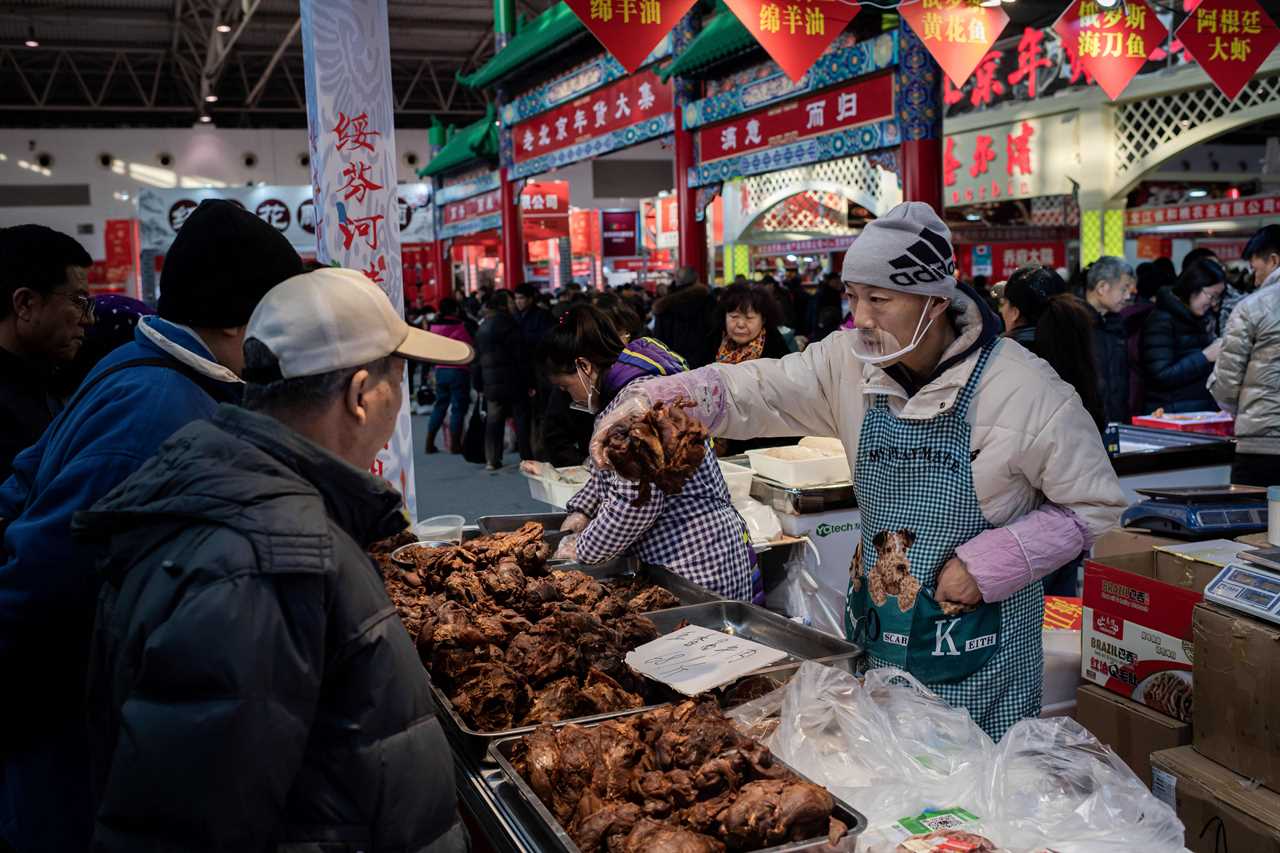
In April the World Health Organisations finally called for a ban on wet markets to prevent the spread of disease and any future pandemics.
In a statement they called on countries to abandon the traditional trade of “live caught wild animals of mammalian species” in a bid to curb public health risks.
“Animals, particularly wild animals, are the source of more than 70% of all emerging infectious diseases in humans, many of which are caused by novel viruses,” they said.
“Wild mammals, in particular, pose a risk for the emergence of new diseases.”
But the global trade wet market trade is estimated to be worth £58bn a year, and many believe there are powerful industry lobbyists that could pressure governments to keep the markets open.
Elizabeth Maruma Mrema, UN biodiversity chief, previously said “It would be good to ban the live animal markets as China has done and some countries.
“But we should also you have communities, particularly from low-income rural areas, particularly in Africa, remember which are dependent on wild animals to sustain the livelihoods of millions of people.”
